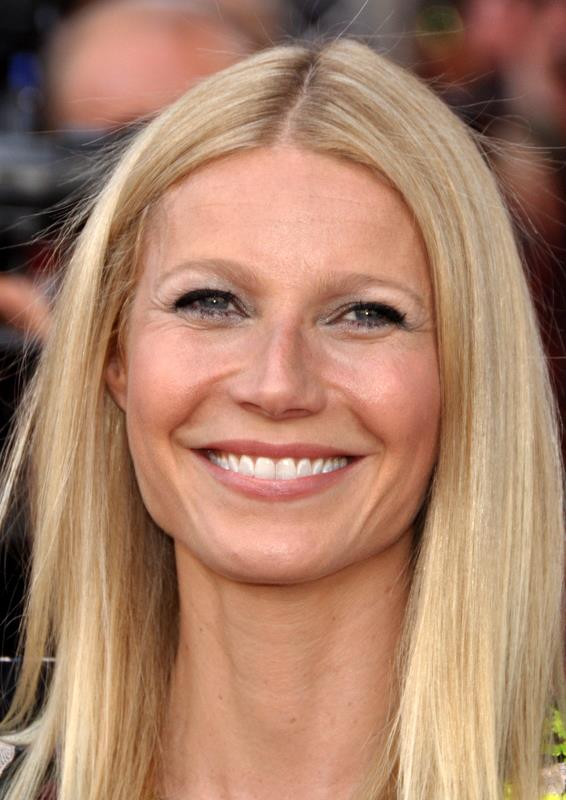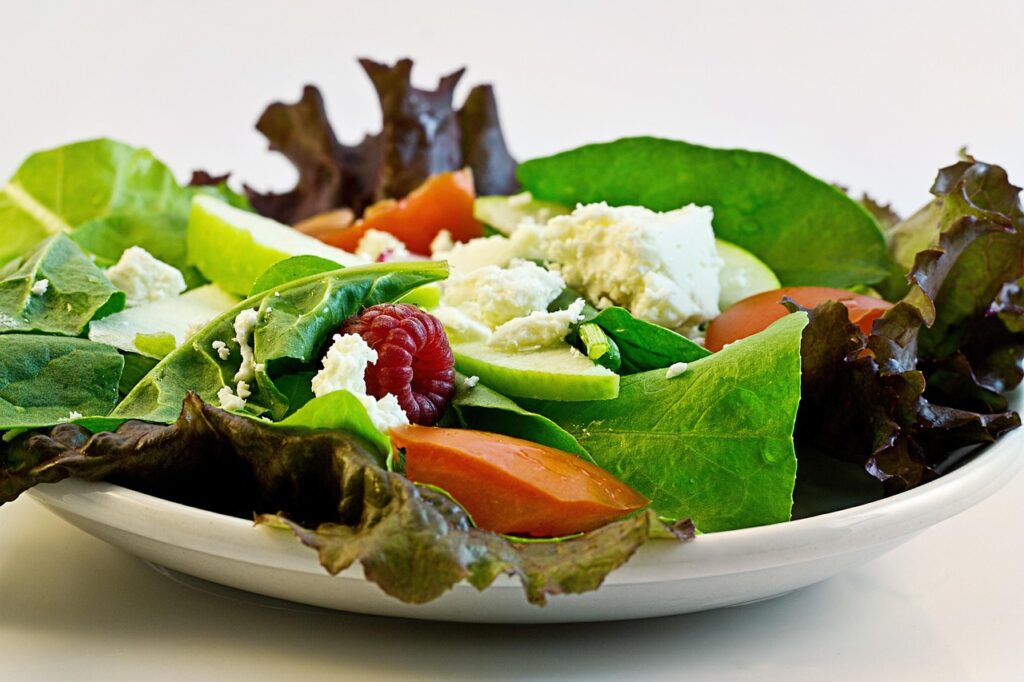
In the ever-evolving landscape of health and wellness, certain figures command outsized attention, shaping public discourse and influencing countless individuals. Gwyneth Paltrow, through her lifestyle brand Goop and her prominent public persona, has long been one such figure, consistently pushing boundaries and challenging conventional wisdom with her unique approach to well-being.
However, her latest revelations regarding personal dietary practices have ignited a fervent debate, drawing sharp criticism from medical experts and nutritionists alike, while also sparking widespread commentary across social media platforms. This renewed scrutiny highlights a persistent tension between individualized health claims and universally accepted scientific principles, compelling a closer look at the advice dispensed by wellness influencers.
This article delves into the specifics of Paltrow’s recently publicized dietary regimen, the significant concerns raised by health professionals, her own explanations and counter-arguments, and the broader societal reactions that underscore a growing skepticism towards extreme wellness fads. We explore the multifaceted implications of such high-profile recommendations and the critical importance of evidence-based health guidance.

1. **Gwyneth Paltrow’s 300-Calorie Diet Controversy**
Gwyneth Paltrow once again captured headlines with a highly controversial diet plan that reportedly involved consuming only 300 calories daily. This regimen, disseminated through her lifestyle brand’s weekly newsletter and co-created with Dr. Alejandro Junger, quickly became a focal point for health experts and the public alike.
The plan included a remarkably restrictive selection of items, such as lemon water, carrot soup, and various seeds. Paltrow presented this approach with specific claims, asserting that it was entirely free from caffeine, gluten, and sugar, and, perhaps most strikingly, that it neither caused hunger nor discomfort for those who followed it.
Despite these assurances, the extreme caloric restriction inherent in the 300-calorie diet immediately triggered serious warnings from nutrition specialists. The mere concept of such a minimal intake raised alarm bells, prompting an urgent re-evaluation of the health advice being promoted within the wellness sphere.
2. **The Specifics of Her Regimen: Bone Broth, Paleo, and Intermittent Fasting**
The details of Gwyneth Paltrow’s daily ‘wellness’ routine were candidly shared on Dear Media’s podcast, “The Art of Being Well,” hosted by Dr. Will Cole, a doctorate of natural medicine who works closely with the Goop founder. Her account provided a striking insight into a lifestyle many health professionals deem dangerously restrictive.
According to Paltrow, her day typically begins with coffee, followed by an intermittent fasting period that extends until midday. For lunch, her staple is usually bone broth, a choice that has become emblematic of the restrictive nature of her diet. Her evenings conclude with an early paleo dinner, consisting primarily of “lots of vegetables,” with the stated goal of supporting her “detox” efforts.
Further elaborating on her routine, Paltrow also mentioned incorporating “celery juice with lemon [or] lemon water” into her diet. She has also claimed that her body is “not a natural detoxer,” a statement that has drawn particular attention from medical experts who emphasize the body’s inherent detoxification capabilities.
Beyond her dietary habits, her daily regimen also includes an hour of movement and a 30-minute dry sauna session, reinforcing a holistic, albeit highly controlled, approach to her personal well-being. This comprehensive picture of her routine highlighted the intensity of her commitment to a particular vision of health.
3. **Medical Experts Sound the Alarm: Dangers of Extreme Calorie Restriction**
The extreme nature of Gwyneth Paltrow’s reported diet drew immediate and unequivocal condemnation from medical professionals. Leading the charge were qualified nutritionists who emphasized the profound dangers associated with such severe caloric limitation, particularly the potential for serious health repercussions.
Erin Palinski-Wade, R.D., a nutritionist practicing in New Jersey, articulated these concerns with clarity and gravity. She explicitly stated, “Eating only 300 calories per day makes it almost impossible for you to take in the vitamins and minerals your body needs on a daily basis, which can over time weaken the immune system and lower energy levels.” Her warning underscored the fundamental inadequacy of such an eating plan.
This level of caloric intake is critically lacking in essential nutrients, a deficiency that poses significant risks to the body’s overall functioning. The direct implications include a weakened immune system, leaving individuals more susceptible to illness, and markedly decreased energy levels, impacting daily vitality and cognitive function.
Moreover, medical experts assert that such practices, if widely adopted, could contribute to potential eating disorders and severely compromised health within the general population. The societal impact of promoting such extreme restrictions, particularly from a high-profile figure, remains a significant concern, risking the normalization of unhealthy eating patterns.

4. **Debunking the “Detox” Myth: The Body’s Intrinsic Cleansing Systems**
Central to Gwyneth Paltrow’s wellness philosophy is the recurring theme of “detoxing,” a concept she frequently cites as a driving force behind her dietary choices. However, this notion of needing to actively “detox” the body through restrictive diets is widely challenged, if not outright dismissed, by qualified dietitians and medical science.
Experts emphatically assert that the body possesses its own sophisticated and highly efficient natural detoxification system. This intricate process occurs continuously through regular metabolic functions primarily carried out by the liver and kidneys, specialized organs designed to filter and eliminate waste products from the body. These biological mechanisms operate effectively without the need for external, drastic interventions or severe calorie cuts.
Nutritionist Karen Reyes directly countered the pervasive myths surrounding detoxification, stating, “Our bodies have a natural detoxing system. Our kidneys and liver have been created to do all the clearing we need without fad diets or restrictive eating habits.” This perspective highlights that reliance on “fad diets” for “detoxing” is often based on misinformation rather than physiological necessity.
Paltrow has, at times, defended her unique approach by citing “genetic mutations” that she claims make it harder for her body to detoxify, and that her body is “not a natural detoxer.” While Dr. Raj Dasgupta, Chief Medical Advisor for Garage Gym Reviews, acknowledged that “some people do clear certain medications or chemicals more slowly because of genetic differences in the liver or kidneys,” he clarified that “that’s real science, but it’s not about doing a juice cleanse, it’s just how your body processes things naturally,” thereby distinguishing scientific realities from popular wellness trends.
Read more about: Why What You’ve Heard About Breakfast Might Be Wrong: A Deep Dive into Skipping and Its Surprising Health Realities

5. **Paltrow’s Personal Defense and the Long COVID Clarification**
Amidst the wave of criticism, Gwyneth Paltrow took to her Instagram Stories to offer a clarification regarding her publicized eating habits, acknowledging that the viral clip from “The Art of Being Well” podcast did not fully represent her everyday diet. She aimed to contextualize her regimen, stating that it “isn’t how she eats every day.”
Paltrow emphasized that her dietary choices were highly personalized and not intended as general advice for others. She explicitly stated that she wasn’t sharing “advice for anyone else,” and that the particular regimen discussed was “a transparent look at a conversation between me and my doctor.” She explained that she eats “far more than bone broth and vegetables” in her regular life.
The Goop founder attributed her specific, restrictive approach to her ongoing experience with post-COVID symptoms, specifically detailing “very high levels of inflammation over time.” She clarified that she had been working with Dr. Cole to focus on “foods that aren’t inflammatory,” such as “lots of vegetables, cooked vegetables, all kinds of protein, healthy carbs to really lower inflammation,” a strategy she claimed had been “very powerful and very positive” for her based on medical results and extensive testing.
Despite her clarifications, Paltrow acknowledged that her routine includes “a lot of days of eating whatever I want. And eating, you know, french fries and whatever.” However, health experts continued to voice concerns that her original comments had set a “dangerous precedent” and could inadvertently encourage vulnerable individuals to emulate a restrictive and potentially unhealthy lifestyle, regardless of her personal context.

6. **The Astronomer Partnership: Unanswered Questions and Martin’s Shadow**
Beyond her dietary practices, Gwyneth Paltrow’s public profile has also seen a recent surge of speculation following her partnership with Astronomer, a new wellness-related company. Her role as a spokesperson for this venture has drawn considerable public curiosity, sparking debates that extend beyond personal health choices into the realms of business and celebrity connections.
Adding a distinct layer of intrigue to the Astronomer affiliation is Paltrow’s high-profile past marriage to Chris Martin, the lead singer of the acclaimed band Coldplay. Their divorce in 2016 was notably amicable, with both maintaining a friendly relationship for the sake of their children, Apple and Moses. Media reports often cited the intense press attention as a primary factor in their separation, rather than personal discord.
The public’s interest in Paltrow’s involvement with Astronomer has intensified precisely because of this connection. Discussions have emerged on social media, questioning whether her role was purely a professional endorsement or if it was, in some capacity, influenced by her enduring ties to Martin and the Coldplay fanbase, especially given the timing of the announcement following a viral Coldplay moment.
Further deepening the mystery, industry insiders have noted the conspicuous silence of Megan Kerrigan, identified as the wife of former Astronomer CEO Andy Byron, amidst the growing public buzz. This lack of comment from a potentially key figure only adds to the layers of intrigue surrounding the unfolding situation, leaving observers to ponder internal dynamics or undisclosed issues within the company.

7. **Social Media’s Swift Backlash: “Almond Mom” and Calls for Accountability**
The revelations about Gwyneth Paltrow’s diet prompted an immediate and widespread backlash across social media platforms, particularly on TikTok, where clips of her interview quickly went viral. The public response was palpable, with users expressing shock, concern, and often, outright disbelief at the severity of her reported eating habits.
Comments flooded in, reflecting a collective exasperation with such extreme wellness advice. Users questioned the fundamental premise of her diet, with one commenter asking, “So bone broth and coffee are meals now?” Another likened the regimen to “colonoscopy prep,” while a third critically inquired, “What is she detoxing? Black coffee, bone broth, and vegetables?”
Many online commentators swiftly labeled Paltrow an “almond mom,” a term popularized by Gen Z to describe mothers who exhibit an obsessive focus on dieting and thinness, often under the guise of being “healthy,” and whose attitudes toward food can inadvertently promote disordered eating behaviors. This label underscored a generational shift in how such wellness rhetoric is perceived.
These widespread reactions, particularly from younger audiences, were not merely critical but often celebratory, indicating a broader cultural shift. Commenters noted, “We are so over the almond mom culture being normal. I love it” and declared, “We are not as easy to convince that starvation is wellness.” This collective rejection signals a “healthy disregard for what’s come before” from a generation increasingly wary of toxic diet culture and demanding greater accountability from influential figures in the wellness space.
The initial scrutiny of Gwyneth Paltrow’s dietary practices and business ventures reveals a complex interplay between personal wellness choices, scientific consensus, and public perception. Yet, beyond the immediate controversy surrounding a single celebrity, these discussions illuminate far broader implications for the wellness industry, the influence wielded by public figures, and the evolving landscape of how health advice is disseminated and received in the digital age. This next section delves into these deeper currents, offering a comprehensive analysis of celebrity impact, expert perspectives on sustainable nutrition, and the transformative power of social media in fostering a more critical and health-conscious dialogue. It concludes with practical insights for individuals navigating the often-conflicting messages of modern wellness.

8. **The Powerful Influence of Celebrity Wellness Advice**
Celebrities, by virtue of their immense platforms and aspirational appeal, frequently become de facto arbiters of lifestyle and health trends, whether intentionally or not. Gwyneth Paltrow’s journey from acclaimed actress to a prominent figure in the wellness community, largely through her brand Goop, exemplifies this phenomenon. Her pronouncements on diet, exercise, and unconventional therapies often garner significant attention, shaping public discourse and influencing countless individuals who look to her as a paragon of health and success. This potent influence underscores the critical need for responsibility and evidence-based counsel when public figures share personal health regimens.
The widespread adoption of social media has amplified this dynamic, allowing celebrity endorsements and personal routines to propagate rapidly and uncritically among vast audiences. The unmoderated nature of these platforms means that nuanced dietary practices, often tailored to an individual’s specific health conditions, can be misinterpreted or generalized into dangerous fads. This creates a challenging environment where the distinction between personalized anecdotes and universal health advice becomes blurred, potentially leading vulnerable followers down paths that are detrimental to their well-being.
Medical experts and nutritionists frequently articulate concerns about this celebrity-driven wellness landscape, highlighting the significant risks when unverified or extreme practices are presented as aspirational. The implicit message that a particular body type or lifestyle is achievable through restrictive means can, as experts noted regarding Paltrow, set a “dangerous precedent.” This can inadvertently encourage vulnerable individuals, particularly those predisposed to body image issues or eating disorders, to emulate a lifestyle that is neither sustainable nor healthy, purely based on the perceived success of a public figure.
Read more about: Beyond the Limelight: Uncovering the Wildly Unexpected Side Hustles of Your Favorite Celebrities
9. **Expert Consensus: Why Restrictive Diets Fall Short of “Wellness”**
Beyond the individual case, the controversy surrounding Gwyneth Paltrow’s diet has reignited critical conversations among medical professionals about what truly constitutes a healthy and sustainable eating pattern. Experts overwhelmingly agree that highly restrictive diets, particularly those severely limiting caloric intake, are not only ineffective for long-term health but are also profoundly detrimental. Aliza Marogy, a registered nutritionist, pointed out that Paltrow’s described diet, consisting mostly of liquids and vegetables, “fails to provide a whole spectrum of nutrients that are essential for optimal daily function and future health.” This deficiency extends to vital components like fiber, protein, and essential minerals.
Such a diet, Marogy elaborated, “lacks fiber for gut and heart health, protein for maintaining muscle and bone and making enzymes and hormones, as well as sources of minerals that are essential for immunity and brain health.” The absence of these fundamental nutrients starves both the body and the brain, leading to tangible negative consequences such as weakened immune function, decreased energy levels, and impaired cognitive abilities. These physiological impacts underscore that genuine wellness is fundamentally about nourishment, not deprivation.
Furthermore, nutritionists like Karen Reyes have explicitly cautioned against the promotion of low-calorie eating, fasting, restriction, and ‘detoxing’ as signs of disordered eating. She asserts that “restriction and detoxing for an extended period can deprive your body of essential vitamins like vitamin D,” which can, in the long term, lead to severe health conditions such as osteoporosis, hypertension, and cognitive impairment. There is even research indicating that missing essential nutrients may increase the risk of developing cancer. These warnings collectively dismantle the notion that extreme caloric reduction aligns with comprehensive health.
10. **The Mediterranean Diet: A Balanced, Sustainable Alternative**
In stark contrast to the restrictive paradigms often championed by some wellness influencers, health experts consistently advocate for balanced, nutrient-rich dietary approaches. Both Aliza Marogy and Karen Reyes, among others, agree that while there isn’t a singular “one-size-fits-all” diet, certain established patterns, like the Mediterranean diet, stand out for their robust evidence base and sustainability. This approach emphasizes whole, unprocessed foods and a rich diversity of nutrients, embodying a philosophy of abundance rather than scarcity.
Marogy describes the Mediterranean diet as one that “minimizes processed foods and is based around healthy fats, fruit, vegetables, whole grains, legumes, and seafood, with moderate amounts of dairy and lean meat.” Crucially, she highlights that “it is not a diet of deprivation, which makes it sustainable.” This focus on a wide array of natural foods ensures that the body receives the necessary vitamins, minerals, fiber, and protein for optimal functioning, supporting long-term health without the psychological and physiological stress associated with severe restriction.
Karen Reyes further reinforces the principle that a healthy diet is built on balance, not limitation. She suggests that meals should primarily consist of “generous amounts of fruits, veg, and whole grains, along with protein-rich foods” such as eggs, fish, lean meat, and dairy or dairy alternatives. This perspective embraces the enjoyment of food, acknowledging that even higher-calorie items, like pastries, can be enjoyed as “an occasional treat” rather than being deemed entirely “off-limits.” This holistic view of eating encourages a healthy relationship with food, free from guilt and rigid rules.
11. **Social Media as a Catalyst for Change: Dismantling Toxic Diet Culture**
The immediate and visceral public reaction to Gwyneth Paltrow’s diet revelations, particularly on platforms like TikTok, represents a significant shift in how wellness advice is received and challenged. Social media, often a conduit for propagating trends, has ironically become a powerful force in dismantling what is increasingly recognized as “toxic diet culture.” Clips of Paltrow’s interview quickly went viral, but the comments that followed were overwhelmingly critical, expressing collective exasperation and a refusal to normalize such extreme practices.
This phenomenon, marked by users labeling Paltrow an “almond mom”—a term coined by Gen Z to describe mothers who promote obsessive dieting under the guise of health—signifies a generational pushback. The term highlights a critical awareness of how seemingly innocuous advice can inadvertently foster disordered eating. Comments like, “So bone broth and coffee are meals now?” or “This literally sounds like colonoscopy prep,” reflect a sharp, collective skepticism and an unwillingness to accept starvation as a pathway to wellness.
Indeed, the online discourse went beyond mere criticism; it often included celebratory notes, such as, “We are so over the almond mom culture being normal. I love it,” and assertions that, “We are not as easy to convince that starvation is wellness.” This “healthy disregard for what’s come before,” as described by Norman Kim, PhD, Advisor to the National Eating Disorders Association, indicates a robust cultural evolution. A generation increasingly informed and vocal is demanding greater accountability from influential figures, actively working to normalize diverse body types and dismantle the pervasive ideals of thinness often linked to wealth and status.

12. **Gen Z’s “Healthy Disregard” for Old-School Wellness Ideals**
The strong response from younger audiences to Paltrow’s dietary practices underscores a profound generational shift in attitudes toward body image and wellness. Where previous generations might have been more susceptible or complacent in the face of celebrity-endorsed fads, Gen Z, exposed to Paltrow’s “schtick” for the first time on platforms like TikTok, has shown a remarkable unwillingness to accept it. Norman Kim, PhD, observes this as a “really healthy disregard for what’s come before,” expressing hope that there has been “some proliferation about body positivity, body neutrality and, at a minimum, just challenging ideas about thinness as the be-all end-all.”
Content creators like Spencer Barbosa, a 20-year-old with millions of followers, exemplify this new ethos, actively promoting body acceptance and working toward the “dissolution of toxic body ideals associated with harmful practices guised as wellness.” Barbosa worries that messages like Paltrow’s “set us back” in this critical evolution. This generation is leveraging social media not just to critique but to educate, providing counter-narratives that emphasize diverse bodies and cultures, and spotlighting practices that are genuinely healthy versus those that are harmful.
This shift is not solely organic; it is also informed by the groundwork laid by millennial leaders in the anti-diet culture space. As Laura Girard noted, “Diet culture recycles the same damaging practices and buzzwords as soon as they fall out of fashion. Now we’re talking about the effects of the media we were fed on YouTube and Pinterest and blogs in the 2010’s, while fighting the exact same rhetoric on TikTok.” This continuous cycle of education and challenge, facilitated by digital platforms, allows for a more informed and united front against harmful diet narratives, slowly but surely “glamorizing eating disorders less and less,” according to dietician Jo Sebastian.

13. **Identifying Warning Signs of Disordered Eating**
Given the pervasive nature of diet culture, whether overtly promoted by celebrities or subtly ingrained in societal norms, it becomes crucial for individuals to recognize the warning signs of disordered eating patterns. Restrictive diets, often masquerading as “wellness,” can quickly morph into unhealthy obsessions that significantly impair physical and mental health. Karen Reyes emphasizes the importance of vigilance, particularly when an individual’s relationship with food shifts from nourishment to control and anxiety.
According to Reyes, key indicators of potentially disordered eating include noticeable “mood changes such as increased anxiety or depression” and a heightened “preoccupation with food types.” This preoccupation can manifest as an excessive focus on caloric intake, macronutrient ratios, or the elimination of entire food groups, often without a medical necessity. Such behaviors move beyond mindful eating into a realm where food becomes a source of stress rather than sustenance and pleasure.
Further warning signs encompass “excessive exercising habits” that go beyond healthy physical activity, becoming a compensatory mechanism for food intake, as well as “avoiding social activities when food may be involved.” These avoidant behaviors often stem from fear or guilt related to eating in front of others or consuming foods that don’t fit within a rigid dietary framework. Recognizing these patterns is the first vital step towards seeking help and fostering a healthier, more balanced approach to food and body image, reinforcing that food is fundamentally meant to nourish, energize, and enable optimal performance.
Read more about: Orthorexia: Understanding the Unhealthy Obsession with ‘Healthy’ Eating and How to Find Balance

14. **Prioritizing Nourishment: A Holistic Approach to Health**
Ultimately, the discourse surrounding celebrity diets and restrictive wellness trends circles back to a fundamental principle: genuine health is not about deprivation or conforming to an idealized physique, but about holistic nourishment that supports both physical and mental well-being. Experts like Karen Reyes unequivocally state that “trying to attain someone else’s physique through unhealthy methods isn’t advisable and your body deserves better.” This message champions self-acceptance and respect for one’s unique physiological needs over external pressures or unrealistic aspirations.
Making healthy dietary changes is most effectively achieved through small, sustainable steps rather than drastic overhauls. Experts advise practical adjustments such as “swapping out refined carbs like white pasta or plain rice for high-fiber choices such as whole wheat, brown rice, and potatoes with the skin on.” Incorporating more plant-based proteins, increasing fish consumption, and minimizing processed foods are also recommended. These incremental changes, focused on adding nutrient-dense options rather than strictly eliminating, are more likely to foster long-term success and a positive relationship with food.
A truly healthy diet is one that makes an individual feel good, both physically energetic and mentally content. It is about fostering balance, listening to one’s body, and understanding that food is a source of vitality and enjoyment, not a tool for punishment or a constant battleground. The collective rejection of toxic diet culture by younger generations, coupled with expert guidance on balanced nutrition, offers a hopeful path forward. It encourages a future where wellness is defined by compassion, sustainability, and informed choices, steering clear of fleeting fads and embracing the enduring wisdom of true nourishment.
In an era saturated with conflicting health advice, the vigilance and discernment demonstrated by the public, particularly younger audiences, are invaluable. The conversation sparked by figures like Gwyneth Paltrow, while at times controversial, ultimately serves to highlight the essential truth: authentic well-being stems from a balanced, respectful approach to our bodies, supported by credible science, not by the latest celebrity pronouncement. It is a powerful reminder that our bodies are intricate systems of self-regulation and resilience, deserving of care that prioritizes health over transient trends.








